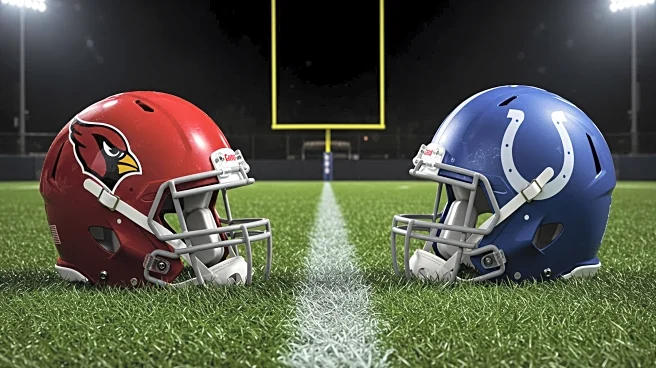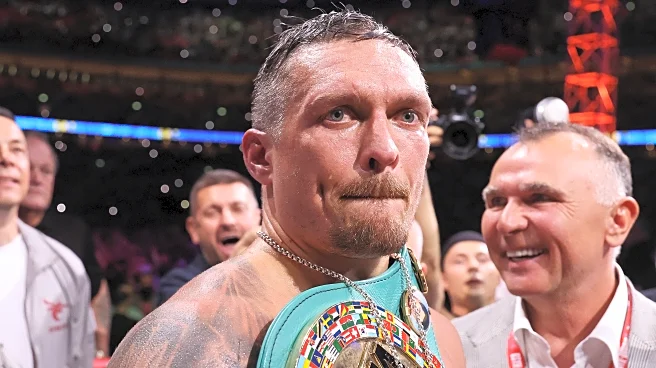What's Happening?
Peyton Manning, renowned for his successful NFL career, visited the Arizona Cardinals' practice facility and took a photo with Marvin Harrison Jr., the son of his former teammate Marvin Harrison Sr. Manning and Harrison Sr. were a legendary quarterback-wide receiver duo for the Indianapolis Colts, setting records with 953 passes for 12,766 yards and 112 touchdowns. They won a Super Bowl together in 2007 and are both Hall of Famers. Marvin Harrison Jr., following in his father's footsteps, was drafted fourth overall by the Cardinals after a stellar collegiate career at Ohio State, where he was a Heisman Trophy finalist. In his rookie NFL season, Harrison Jr. recorded 885 receiving yards and eight touchdowns, contributing to the Cardinals' improved performance, although they missed the playoffs.
Why It's Important?
The meeting between Peyton Manning and Marvin Harrison Jr. highlights the legacy and influence of NFL families, showcasing the potential for generational talent in the league. Harrison Jr.'s promising start in the NFL, coupled with his father's legacy, positions him as a player to watch. The Cardinals' decision to draft him reflects their investment in building a strong team foundation. Manning's visit underscores the importance of mentorship and the impact of veteran players on emerging talent. This event also emphasizes the Cardinals' efforts to improve their performance and competitiveness in the league.
What's Next?
Marvin Harrison Jr. is expected to continue developing his skills and contributing to the Cardinals' efforts to reach the playoffs. The team will likely focus on building around young talent like Harrison Jr. to enhance their competitiveness. Manning's visit may inspire Harrison Jr. and other players, potentially leading to increased performance and motivation. The Cardinals will aim to leverage their improved roster to achieve better results in the upcoming season.
Beyond the Headlines
The interaction between Manning and Harrison Jr. highlights the cultural and familial aspects of sports, where legacies and personal connections play a significant role. It also reflects the broader trend of athletes' children entering professional sports, raising questions about the influence of genetics and upbringing on athletic success. This event may inspire discussions on mentorship and the role of veteran players in guiding new talent.










